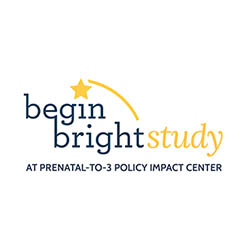LBJ School of Public Affairs Associate Dean Dr. Cynthia Osborne, director of the Child and Family Research Partnership and the Prenatal-to-3 Policy Impact Center, has been appointed to the National Academies of Sciences, Engineering, and Medicine Committee on Exploring the Opportunity Gap for Young Children from Birth to Age Eight. She was also a member of the National Academies’ Committee on Building an Agenda to Reduce the Number of Children in Poverty by Half in 10 Years who authored a landmark study on child poverty.
The new 13-member committee will conduct a consensus study on the causes and consequences of the opportunity gap for young children from birth to age eight. In addition to her work in early childhood policy, Osborne brings her expertise in poverty and inequality, demography, and social policy. She also previously served as director of the Project on Education Effectiveness and Quality, an initiative at the LBJ School of Public Affairs that measured state educator preparation programs’ influence on student achievement.
Osborne holds a Ph.D. in Demography and Public Affairs from Princeton University, a Master in Public Policy from Harvard’s Kennedy School of Government, and a Master of Arts in Education from Claremont Graduate University. Previously, Osborne taught middle school in a low-income community in California.
More about Dr. Cynthia Osborne here.
About the Committee on Exploring the Opportunity Gap for Young Children from Birth to Age Eight
As fully described here, the committee will:
- Identify and describe the opportunity gap (the potential causes–societal conditions that preclude equal access to high-quality educational opportunities) and its relationship, if any, with the achievement gap (the effect–subgroups of children who demonstrate lower performance than others and subgroups of children who do not achieve at a recognized level of performance).
- Review available research on the effects of the opportunity gap on children from birth to age eight and its relationship to demographic characteristics and institutional racism and discrimination.
- Review available evidence on family and community factors, and pre-K to grade 3 school factors, that promote, mitigate, or diminish opportunities and achievement for children.
- Discuss the economic costs posed by the opportunity gap and the potential economic benefits of investing in strategies, interventions, and policies to address opportunity gap concerns for children from birth to age eight.
- Review evidence on promising federal and state government policy and program interventions that have addressed opportunity gap concerns for children from birth to age eight.
- Develop recommendations for education policy, practice, and research to better understand the opportunity gap and promote success for all students pre-K to grade 3.
- Identify the potential roles, actions and supports appropriate for philanthropy to assist in addressing the opportunity gap for young children from birth to age eight.
The committee will produce a consensus report that synthesizes the information gathered on the relationship between the opportunity and achievement gaps for young children from birth to age eight, and make recommendations on how to improve conditions and promote success for children–at home, in communities, and in schools.



